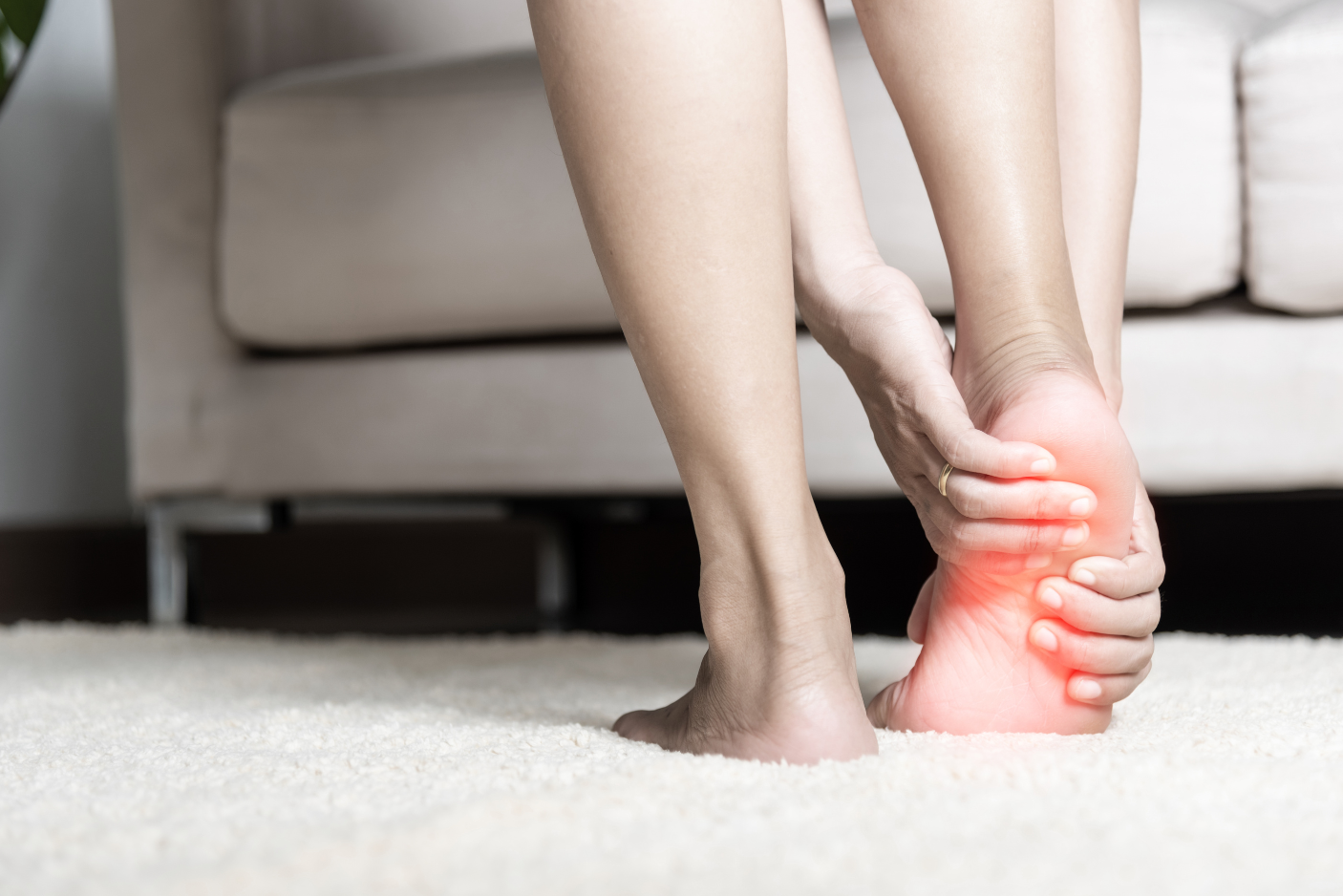
What Causes Heel Pain?
Foot pain isn't pleasant for anyone, but heel pain can be especially uncomfortable. If you are suffering from chronic heel pain, it could be caused by several reasons, some of the most common include:
Achilles Tendonitis
Achilles Tendonitis is an overuse injury causing pain at the back of the heel, directly affecting the Achilles tendon. This condition often results from repetitive stress to the tendon, common in runners and athletes. Symptoms include pain and stiffness along the Achilles tendon, especially in the morning or after periods of rest.
Rheumatoid Arthritis
Rheumatoid Arthritis in the heel causes inflammation in the joint, leading to pain, swelling, and stiffness. It's an autoimmune condition where the immune system mistakenly attacks the joints, leading to chronic inflammation. Heel pain from rheumatoid arthritis may vary in severity and often worsens after periods of inactivity or in the morning.
Plantar Faciitis
Plantar Fasciitis is a common cause of heel pain, involving inflammation of the plantar fascia, a thick band of tissue that runs across the bottom of your foot and connects your heel bone to your toes. It's particularly known for causing stabbing pain that typically occurs with your first steps in the morning. Overuse, excessive weight, or improper footwear can contribute to its development.
Fractures and Sprains
A fracture or sprain in the heel can result from an injury such as a fall, a direct blow to the heel, or a high-impact event. A fracture refers to a break in the bone, while a sprain involves the ligaments, the fibrous tissues connecting bones. Both conditions lead to immediate heel pain, swelling, and difficulty walking or bearing weight on the affected foot.
Heel Spurs
Heel Spurs are growths of bone on the underside, forepart of the heel bone. They often result from strain on the muscles and ligaments of the foot, stretching of the plantar fascia, and repeated tearing of the membrane that covers the heel bone. Heel spurs can be associated with intermittent or chronic pain, especially when walking, jogging, or running.
Bursitis
Bursitis of the heel occurs when the bursae, small fluid-filled sacs that cushion the bones, tendons, and muscles near your joints, become inflamed. In the heel, this condition often affects the bursa located between the Achilles tendon and the heel bone or the bursa under the heel bone itself. It can result from overuse, repetitive motion, or direct pressure on the heel. Symptoms include pain at the back or bottom of the heel, especially with walking, running, or when pressure is applied.
Plantar Fasciitis
If you are experiencing chronic heel pain and find that it happens more when you stand for a long time or when you first wake up in the morning, you might be suffering from plantar fasciitis. Plantar fasciitis is a painful condition affecting the muscles in your foot's sole.
Plantar Fasciitis is the inflammation of the connective tissue under the bottom of the foot and most often occurs as pain in the bottom of the heel.
The plantar fascia is one of the most robust structures in your body. Studies show that it can withstand up to 30 times your body weight when jumping or landing; however, by association, the "weakest point" is where the plantar fascia attaches to the heel bone.
Contact Us
Hall Bank Clinic is located in the Heart of Buxton, looking on to The Pavilion Gardens, Old Hall Hotel, Broad Walk and the Crescent Hotel.
Address
Hall Bank Clinic, 1A The Savoy, Hall Bank, Buxton, Derbyshire, SK17 6EW
Contact Info
Email: info@hallbankclinic.co.uk
Phone: 01298 23715






